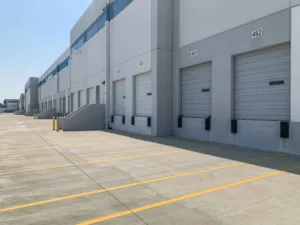With concerns around the rising impact of inflation, investors are increasingly seeking stable and resilient investment opportunities. One asset class that has demonstrated remarkable resilience in the face of inflation is self storage investing. This sector’s inherent characteristics not only provide a hedge against inflation but also offer steady growth potential, making it an attractive option for investors looking to safeguard their portfolios. Let’s delve into why self storage investing stands as an inflation-resistant beacon in the tumultuous sea of investment options.
A Closer Look at Inflation Resistance
Inflation resistance refers to an investment’s ability to maintain or increase its value over time, despite the eroding effects of inflation. Inflation can diminish the real value of money, making it crucial for investors to choose assets that can outpace or withstand these economic pressures. self storage investing emerges as a robust contender in this arena for several compelling reasons.
1. Short-Term Leases Allow for Flexible Pricing
Unlike traditional real estate sectors, such as residential or commercial, where leases can span several years, self storage units typically operate on month-to-month agreements. This flexibility allows operators to adjust rental rates more frequently, responding swiftly to inflationary trends and maintaining revenue growth in line with or above inflation rates.
2. High Demand Regardless of Economic Conditions
Self storage facilities benefit from what’s often referred to as a “counter-cyclical” demand pattern. In prosperous times, people tend to buy more goods, eventually needing extra space to store their purchases. Conversely, during economic downturns, individuals might downsize or relocate, increasing the demand for storage as they seek temporary places for their belongings. This consistent demand, regardless of economic conditions, provides a stable revenue stream that can help hedge against inflation.
3. Low Operational Costs
The operational costs associated with running a self storage facility are relatively low compared to other types of real estate investments. self storage units do not require the same level of interior finishes, fixtures, or regular maintenance that residential or commercial properties demand. Moreover, the technology-driven nature of many modern facilities, with automated access and online booking systems, can further reduce labor costs. These lower operational expenses contribute to the sector’s ability to maintain profitability, even when inflation increases costs elsewhere.
4. Diverse Tenant Base
The tenant base for self storage facilities is remarkably diverse, encompassing individuals, families, businesses, and even government agencies. This diversity helps to insulate the sector from sector-specific downturns. For instance, if the commercial sector is struggling, the demand from residential tenants might offset any potential loss in revenue, and vice versa. This diversification supports steady cash flow, making self storage a resilient investment in varying economic climates.
5. Real Asset Investment
Self storage investments are anchored in real estate, meaning investors own a tangible asset that historically appreciates over time. Real assets like land and buildings often serve as a hedge against inflation, as their value tends to rise along with the cost of replacement materials and construction labor. This appreciation can provide an additional layer of protection against the purchasing power erosion typical of inflationary periods.
Conclusion
In the quest for inflation-resistant investments, self storage stands out as a sector capable of not just surviving but thriving under inflationary pressure. Its unique combination of flexible lease terms, consistent demand, low operational costs, and tangible asset appreciation make it an attractive option for investors seeking to fortify their portfolios against the uncertainties of inflation. As with any investment, due diligence and strategic planning are key, but for those looking to hedge against inflation, self storage investing offers a compelling case.





